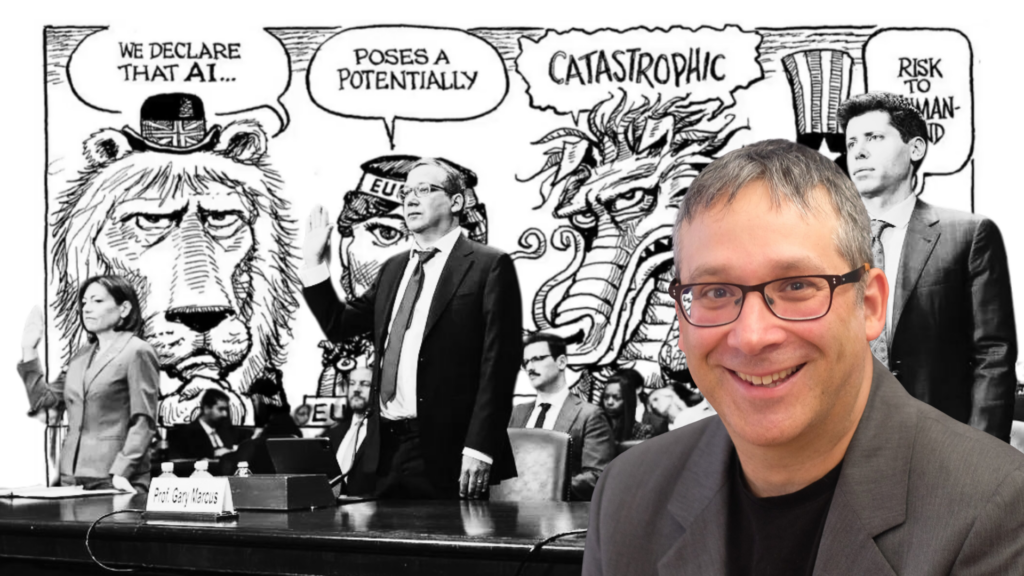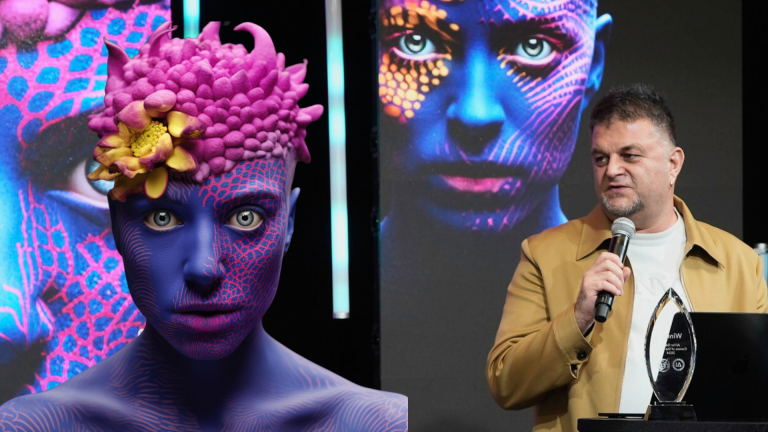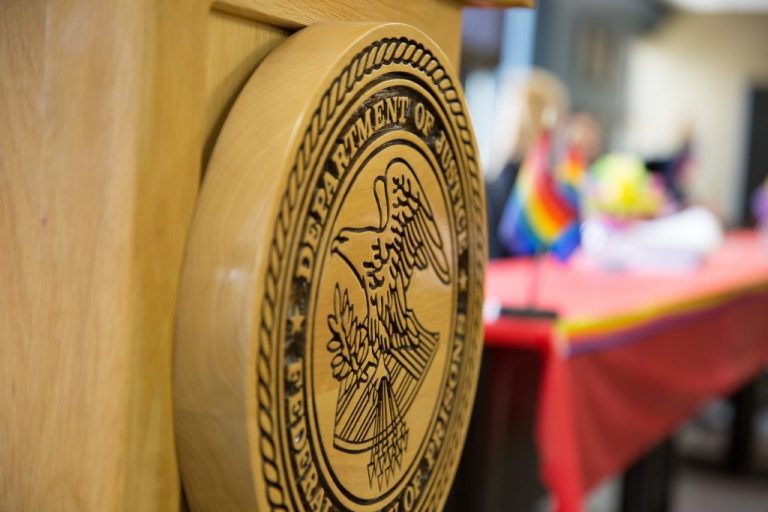Navigating the Ethical Landscape of AI: Gary Marcus’s Insights on Aligning Technology with Human Values
Gary Marcus Advocates for Ethical AI at Shanghai Summit
In a captivating speech at the AI for Good Innovate for Impact conference in Shanghai, Gary Marcus, a distinguished cognitive scientist, acclaimed author, and seasoned entrepreneur, articulated a visionary framework aimed at ensuring that artificial intelligence (AI) prioritizes humanity’s well-being. His remarks resonate profoundly as AI continues to interweave with various societal facets.
Marcus began his presentation by highlighting the imperative for ethical principles in AI evolution.
“I believe we should initiate our approach with an AI that aligns with human rights and human dignity,”
He referenced key guidelines, such as UNESCO’s global ethical standards for AI and the U.S. White House’s AI blueprint, as vital benchmarks for ethical AI development. Marcus expressed concern over the current state of AI, especially generative AI, calling it “technically and morally inadequate,” underscoring the critical need for systems that genuinely reflect ethical principles.
The Limitations of Generative AI
Marcus offered a frank analysis of generative AI, labeling it “rough draft AI” because of its propensity to produce information that, while plausible, is often incorrect. He shared striking examples to emphasize his point, including an AI’s bizarre assertion that one kilogram of bricks weighs as much as two kilograms of feathers, backed by articulate yet flawed reasoning. This inclination to concoct inaccuracies, he argued, starkly represents the current limitations and pitfalls found within generative AI models.
Delving deeper into the ethical implications, Marcus emphasized the importance of tackling issues such as bias and plagiarism, which AI can unintentionally amplify. Despite growing awareness and efforts to address these challenges, they continue to be significant issues since AI systems frequently reconstruct language based on their training data, often containing copyrighted material. This practice raises serious legal and ethical concerns surrounding the originality and validity of AI-generated content.
Addressing the Need for Strong Regulation
Marcus addressed the complexities of risk management associated with artificial intelligence, advocating for realistic expectations accompanied by comprehensive legal frameworks.
“It’s unrealistic to anticipate a singular solution for all the risks posed by AI or to assume that current laws will suffice,”
He called for more robust regulatory frameworks, stressing the necessity for agile, transparent, and accountable AI development.
“We require complete transparency regarding the data utilized for training models and a thorough account of all AI-related incidents concerning bias, cybercriminality, election interference, market manipulation, and more,”
He suggested a regulatory model analogous to the U.S. FDA’s drug approval process, proposing the creation of an agency responsible for assessing large-scale AI implementations to ascertain whether their benefits outweigh associated risks.
Moreover, Marcus highlighted the essential role of post-release audits conducted by independent third parties to ensure that AI systems conform to ethical standards and are not deployed for detrimental purposes. “We need liability laws and layers of oversight,” he stated, drawing comparisons with the aviation sector, where multiple regulatory layers enhance safety.
Long-term Risks and Current Challenges
During his address to the U.S. Senate, Marcus noted substantial bipartisan support among senators for his proposals. Nevertheless, he expressed concerns over the potential challenges to implementing these regulations, particularly due to financial influences and the sway of major tech corporations. He cautioned that the priorities of technologists may diverge from the overarching interests of humanity.
“We shouldn’t allow dominant tech companies to dictate our future,”
He further elaborated on the risks of regulatory capture and the deceptive allure of industry hype, warning against the exaggerated claims from tech leaders.
“Artificial general intelligence is far from imminent; don’t fall for their rhetoric. We must confront the genuine challenges posed by AI,”
This kind of hype runs the risk of misleading both the public and policymakers, which could lead to poorly informed decisions and misallocation of resources, highlighting the necessity for a clear and pragmatic understanding of AI’s current capabilities.
A Balanced Perspective on AI Progress
Marcus expressed his belief in the feasibility of developing a more refined AI—one that is not only technically adept but also ethically sound.
“I genuinely believe that a superior AI is achievable, one that aligns with human rights and dignity,”
He stressed the importance of drawing inspiration from the human mind, which deftly integrates diverse cognitive systems.
Ultimately, Marcus called for a balanced approach that synthesizes the strengths of various AI paradigms. He criticized the existing animosity between advocates for neural networks and supporters of symbolic AI, proposing that a hybrid strategy might result in optimal outcomes.
“If we can develop an AI that harmonizes the best qualities of both worlds, we will create a system that is learnable, data-efficient, interpretable, reliable, verifiable, and grounded in truth,”
Drawing a parallel with the global urgency to address climate change, Marcus pointed out a narrow window for timely action in AI governance. “Time is limited for proactive measures. I doubt that governments will take action unless the populace underscores its importance,” he cautioned. He urged the public to acknowledge the critical significance of guiding AI development correctly, warning that today’s decisions will have lasting effects for generations.
Through his insights, Marcus has offered a thoughtful yet optimistic vision for the future of AI. By championing ethical standards, transparency, and robust regulatory measures, he reinforces the need for directing AI development towards genuinely benefiting humanity. As the AI landscape evolves, his call to action serves as a vital reminder of the responsibilities inherent with technological progression.







